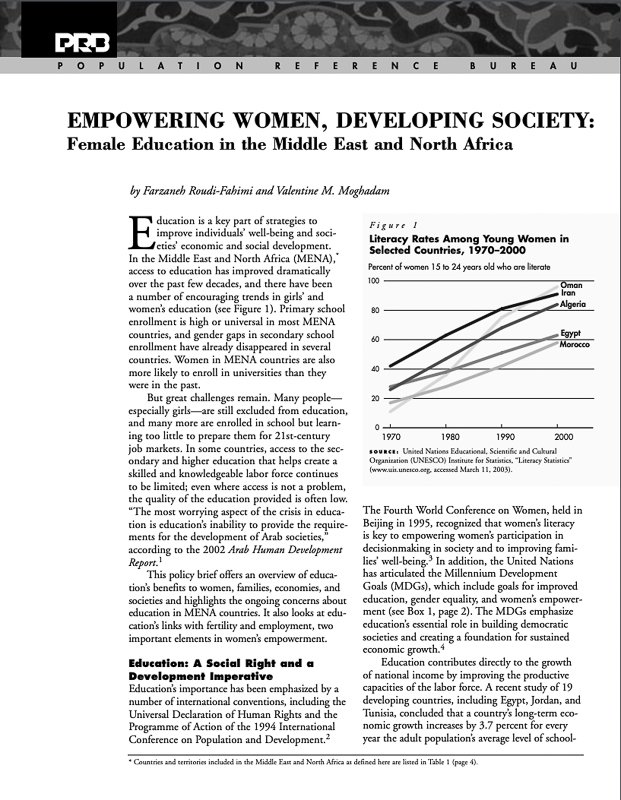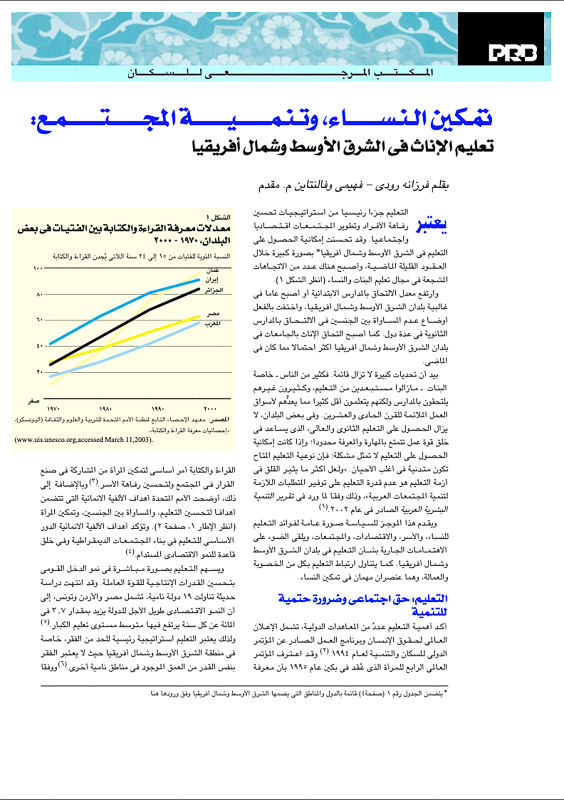Report. Empowering Women, Developing Society: Female Education in the Middle East and North Africa
(2003) Education is a key part of strategies to improve individuals' well-being and societies' economic and social development.

(2003) Education is a key part of strategies to improve individuals' well-being and societies' economic and social development.

Project: KIDS COUNT Technical Assistance and Training
Video tutorials introduce data users to the system and provide step-by-step guidance for two key applications.

(2003) Education is a key part of strategies to improve individuals' well-being and societies' economic and social development.
(2003) Education is a key part of strategies to improve individuals' well-being and societies' economic and social development.
(2009) As many as 140 million girls and women worldwide have undergone female genital mutilation/cutting (FGM/C), and more than 3 million girls are at risk for cutting each year on the African continent alone.
In 2008, 36 million people died from noncommunicable diseases (NCDs). Deaths related to these chronic diseases are increasing, especially in low- and middle-income countries.
(2012) Of the 48 least developed countries in the world, 33 are located in sub-Saharan Africa. At the same time, this region stands out with the highest birth rates in the world.
(2010) Most poor children achieve less, exhibit more problem behaviors, and are less healthy than children raised in more-affluent families. Looking beyond these well-known correlations between poverty and negative outcomes in childhood, recent studies have assessed the effects of childhood poverty in the United States on later attainment and health.